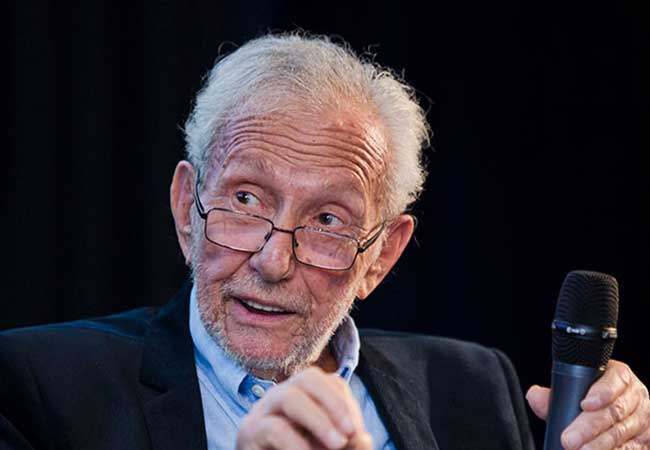
The latest lecture series introduced at Goethe University – the “Buber-Rosenzweig Lecture on Jewish Intellectual History and Philosophy” – focuses on topics related to Jewish thought in both the past and the present. Following the 2021 establishment of the Buber-Rosenzweig Institute for Jewish Intellectual and Cultural History of Modernity and the Present, the lecture series will replace the “Martin Buber Lecture”, which had addressed topics of Jewish thought, history and culture since 2010 and which brought numerous renowned researchers to Frankfurt.
The new lecture series will be kicked-off by Professor Steven E. Aschheim from Jerusalem. Thursday, November 3, 2022, at 18:15 Lecture Hall 5 in the Lecture Hall Center Westend Campus.
Aschheim will be speaking about the topic “Zionism and Europe”. 125 years after the First Zionist Congress, held in Basel in 1897, the renowned historian and emeritus professor of the Hebrew University of Jerusalem addresses the role Europe played in the history of the Zionist movement in the 20th century and continues to play in the state of Israel to this day. He addresses the tension that prevailed in Zionism’s early days: although Theodor Herzl, author of the famous “The Jewish State” (1896), and other representatives of the Zionist movement fundamentally questioned whether Jewish life in Europe was possible in the face of rising anti-Semitism, Zionism was nevertheless deeply rooted in Europe – in ideological, cultural, social and political concepts. The many-voiced debates about nationalism, humanism, and cosmopolitanism that took place in Europe before World War I shaped the self-image of the various Zionist currents. Aschheim will also explore the question of how Europe was perceived after the founding of the state of Israel, and in the wake of the experiences of World War II and the genocide of European Jews. He will also discuss the significance of relations with Europe in current social, political and cultural debates in Israel.
The “Buber-Rosenzweig Lecture on Jewish Intellectual History and Philosophy” will in future be held annually. The series is organized by the Martin Buber Professorship for Jewish Philosophy of Religion and the Buber-Rosenzweig Institute for Jewish Intellectual and Cultural History at the Faculty of Protestant Theology. The lectures are financed by the Martin Buber Professorship and the Faculty of Protestant Theology.
“We are very pleased to have Prof. Steven E. Aschheim, an important interpreter of German-Jewish and European-Jewish history in the 20th century, deliver the first lecture in our new series named after Martin Buber and Franz Rosenzweig, two important figures in Frankfurt’s Jewish history,” says Prof. Christian Wiese, director of the Buber-Rosenzweig Institute. The Jerusalem-based historian is the author of numerous influential books, including “The Nietzsche Legacy in Germany” (1992), “Culture and Catastrophe: German and Jewish Confrontations with National Socialism and Other Crises” (1996), “Beyond the Border: The German-Jewish Legacy Abroad” (2007), and “Fragile Spaces: Forays into Jewish Memory, European History and Complex Identities” (2018).
The lecture will be held in English. Registration (at kramberger@em.uni-frankfurt.de) is desired, but not mandatory for participation.








